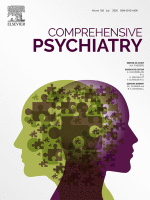Taken from this academic paper written by experts:
Preventing problematic internet use during the COVID-19 pandemic: Consensus guidance
Excerpt
General
• Making an activity schedule for each day and week (e.g., planning in advance when one is going to work/study, engage in social activities, perform leisure activities, conduct physical exercise) and promoting a daily routine at home in self-isolation, quarantine, or lockdown may be very helpful at a time when daily structure is lost or reduced.
• Sleeping regularly and enough, eating regularly and healthily, drinking sufficient fluids, and attending to personal hygiene are essential not only to maintain good physical health but also for enhancing psychological well-being.
• Engaging in physical activity regularly is not only necessary to keep a healthy body but also contributes to boosting mood by reducing levels of stress hormones, stimulating the production of endorphins (i.e., natural chemicals in the brain that relieve pain and enhance mood) and having a beneficial effect on immune function.
• Learning and using relaxation and other stress-reduction techniques (e.g., reading, writing, listening to music, meditation, autogenic training, and mindfulness exercises) can be helpful in keeping bodies and minds healthy and to be aware of ones’ emotions. When dealing
with difficulties, openly communicating about emotions with a close relative or friend, asking for help and feeling social support can effectively help to reduce stress and anxiety.
• Enjoying social activities and maintaining relationships are also crucial [25]. Family members should arrange to spend quality time with each other and have “family time” periods on a regular basis. Family time may include meaningful conversations, playing social games or sports, eating meals and doing household chores together.
• For individuals who live together with their family or others, it may be useful to find ways of being alone or having some self-time regularly. It may help to negotiate spaces in the house for individual and common use, as well as to establish and respect boundaries such as doors being open or closed. This may help reduce frustration and conflicts that may arise from being confined in the same place for long periods.
• Following the WHO advice to keep up-to-date on the status of the pandemic and public health advice from reliable news sources in a circumscribed way (e.g., watching a reputable news broadcast once or twice per day at a specified time)while limiting excessive exposure to such news can promote balanced and informed thinking about the pandemic.Specific
• Being conscious of, self-monitoring and regulating one’s screen time (i.e., the amount of time spent using all devices with a screen such as smartphone, computer, television, or video game console) are essential. Reducing access or exposure by putting the smartphone/device
somewhere where it is not constantly available when engaging in technology-free activities and turning off or muting notifications and associated sounds on mobile devices may be helpful methods of such self-regulation. Constantly checking social media or watching the news about the pandemic may have a negative impact on mental wellbeing.
• Monitoring and regulating children’s behavior is also crucial and it may best be done by involving them in rule-making. Additionally, parents are role models; thus, regulating their own ICT-related behaviors (e.g., social media use, aimless surfing on the internet) may help their children to establish controlled use as well. Parents are also encouraged to actively participate in the ICT-related behaviors of their
children (e.g., playing video games together with them). Such involvement of the parents will help them regulate their children’s usage (e.g., by knowing the characteristics of different video games), as well as promote adaptive online activities and reduce the use of other ones.
• Using digital well being apps (i.e., apps that provide feedback about the amount of time spent on different apps) can be helpful in raising awareness and self-regulation. Having pre-scheduled technology free periods or programs, and setting specific limits for oneself (e.g., time and/or financial limits for online shopping, gambling or gaming), can all help maintain a healthy balance between screen based and screen-free activities. Tracking per-session, daily, weekly and monthly limits may be helpful to minimize time online and financial
expenditures.
• Using analogue technical tools (e.g., wristwatches, alarm clocks) when possible instead of ICT tools may help prevent overuse in certain situations (e.g., checking the time on a smartphone might turn into the use of other applications such as social media sites due to the notifications appearing on the locked screen) [26].
• Keeping in touch with friends, relatives and acquaintances (via internet or telephone)may help reduce feelings of loneliness during physical distancing and enhance quality of life. ICTs such as group calls, socialmedia groups, and online video games can be useful in forming and maintaining meaningful relationships across physical distances.
• Seeking help if needed is also very important. If experiencing high levels of distress or significant difficulties controlling internet use or specific online activities (e.g., gambling, gaming, watching pornography), mental health professionals should be contacted. Helplines and telehealth consultations might be available depending on the country of residence. Seeking help in early stages may be especially effective to relieve symptoms.
